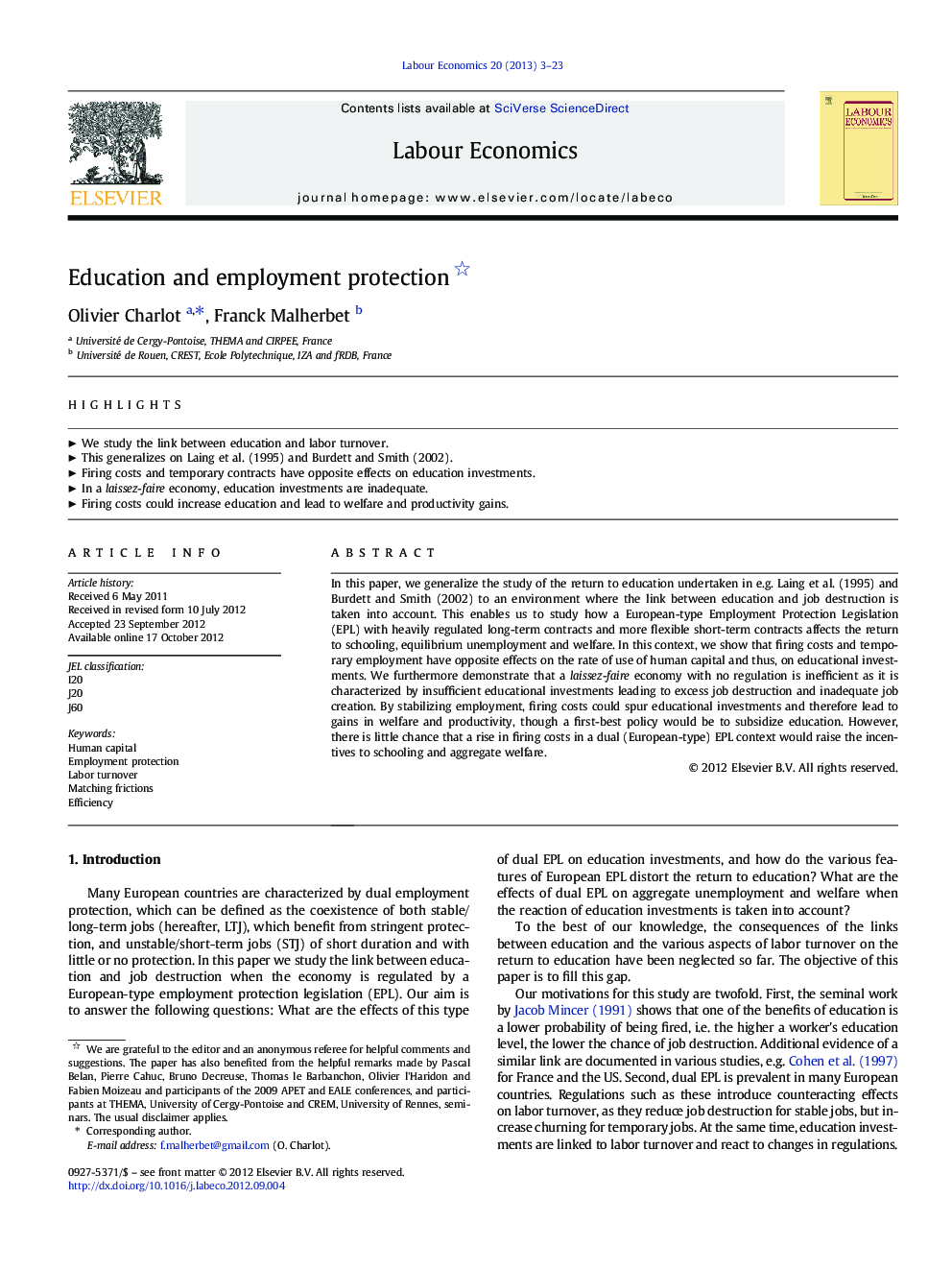| Article ID | Journal | Published Year | Pages | File Type |
|---|---|---|---|---|
| 971508 | Labour Economics | 2013 | 21 Pages |
Abstract
In this paper, we generalize the study of the return to education undertaken in e.g. Laing et al. (1995) and Burdett and Smith (2002) to an environment where the link between education and job destruction is taken into account. This enables us to study how a European-type Employment Protection Legislation (EPL) with heavily regulated long-term contracts and more flexible short-term contracts affects the return to schooling, equilibrium unemployment and welfare. In this context, we show that firing costs and temporary employment have opposite effects on the rate of use of human capital and thus, on educational investments. We furthermore demonstrate that a laissez-faire economy with no regulation is inefficient as it is characterized by insufficient educational investments leading to excess job destruction and inadequate job creation. By stabilizing employment, firing costs could spur educational investments and therefore lead to gains in welfare and productivity, though a first-best policy would be to subsidize education. However, there is little chance that a rise in firing costs in a dual (European-type) EPL context would raise the incentives to schooling and aggregate welfare.
Related Topics
Social Sciences and Humanities
Economics, Econometrics and Finance
Economics and Econometrics
Authors
Olivier Charlot, Franck Malherbet,
